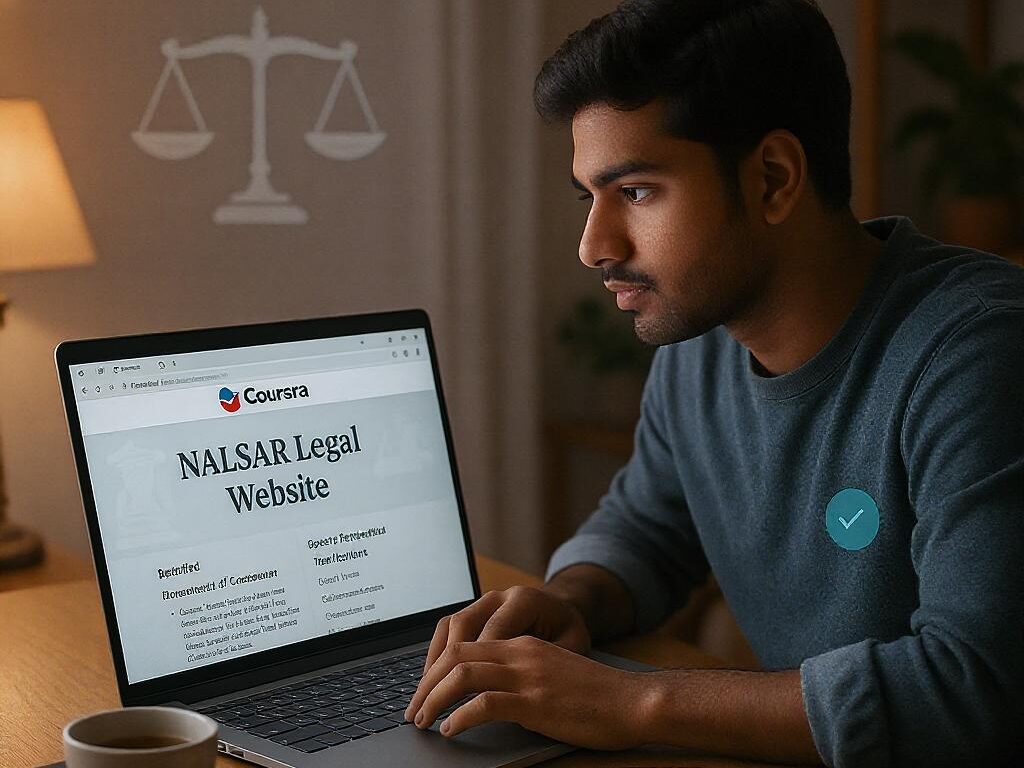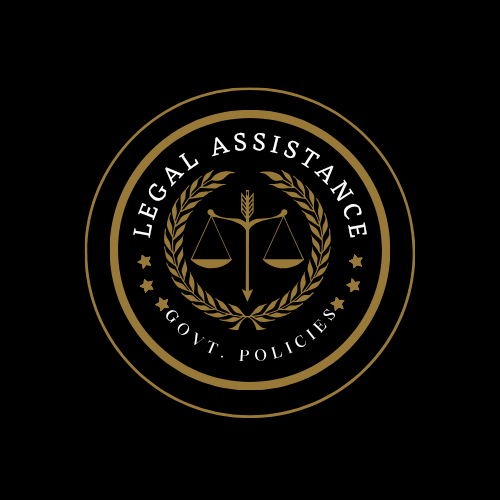5 Free Resources to Learn Law as a Non-Lawyer
In today’s complex world, understanding the law is no longer optional—it’s essential. Whether you’re a small business owner, student, employee, activist, or just a curious individual, legal literacy empowers you to protect your rights, understand obligations, and make informed decisions. But here’s the best part: you don’t need a law degree to get started. In fact, you can learn law as a non-lawyer using high-quality, free resources online.

Law governs almost every aspect of our lives—be it signing contracts, renting property, starting a business, or even dealing with the police. Having a basic understanding of legal principles can prevent costly mistakes, make you a more informed citizen, and even open doors to new career opportunities.
This article presents five of the best free resources to learn law as a non-lawyer, suitable for beginners who want to explore legal studies from scratch. Whether you’re in India, the U.S., or anywhere in the world, these platforms provide excellent starting points to build legal literacy at your own pace.
1. Harvard University – Free Law Courses on edX
Website: edx.org/school/harvardx
Best for: Academic legal theory and foundational concepts
Harvard University, through the edX platform, offers free online law courses accessible to learners across the globe. These courses are structured to provide an introduction to core legal principles, making them ideal for people who want to learn law as a non-lawyer.
Notable Courses:
- Justice by Prof. Michael Sandel – One of the most popular courses on ethics, morality, and law.
- Contract Law: From Trust to Promise to Contract – A must for freelancers and business owners.
- International Human Rights – Ideal for those interested in law and global activism.
All courses include video lectures, assignments, readings, and discussion forums. You can audit these courses for free, while certification is optional and paid.
Why It Stands Out:
You get to access world-class legal education without paying a dime. The courses are comprehensive yet accessible, and perfect for anyone wanting to build a strong legal foundation from scratch.
2. NALSAR University – Legal Literacy Course (India)
Website: nalsar.ac.in
Best for: Understanding Indian law and citizen rights
For those based in India or interested in Indian legal systems, NALSAR University of Law offers a Legal Literacy Course specifically designed for non-lawyers.

This program is available in multiple Indian languages and explains the law in simple, practical terms.
| Feature | Details |
|---|---|
| Course Name | Legal Literacy Course |
| Institution | NALSAR University of Law, Hyderabad |
| Target Audience | Indian citizens, students, activists, and professionals |
| Languages | English and multiple Indian regional languages |
| Topics Covered | Constitutional rights, criminal law, RTI, FIR, PIL, family law, consumer rights |
| Mode | Online – Video + Reading Material |
| Certificate | No certificate (knowledge-focused) |
| Access | Click to Visit NALSAR Course Page |
What You’ll Learn:
- Indian Constitution and the structure of the legal system
- Basic criminal and civil laws
- Filing RTIs (Right to Information), FIRs, PILs (Public Interest Litigation)
- Legal procedures related to marriage, divorce, and property
The course is available online and provides text-based material, videos, and regional translations, making it one of the most inclusive legal literacy programs in India.
Why It Stands Out:
This course focuses on empowering ordinary citizens with legal tools to navigate everyday issues, such as dealing with police, resolving landlord-tenant disputes, and understanding your consumer rights.
3. YouTube Channels – Free Video Lessons on Law
Best for: Visual learners and real-world legal examples
Top Channels:
- LegalEagle (U.S.-based)
- LawShelf (U.S. law education)
- VakilSearch Legal Guide (India-focused)
If you prefer to learn through videos, YouTube is an amazing resource to learn law for free. Several high-quality legal YouTube channels offer tutorials, case studies, and explainers in plain language.
Why You Should Watch:
- LegalEagle: Attorney Devin Stone breaks down U.S. legal concepts with humor and clarity.
- LawShelf: Offers entire video modules on criminal law, contract law, business law, and torts.
- VakilSearch: Explains Indian laws like consumer protection, GST, startup laws, and RTIs in everyday language.
These channels cover both theory and application, helping you understand law without attending law school.
Why It Stands Out:
Free, accessible, and constantly updated, these channels are ideal for anyone who wants to learn legal basics online without reading lengthy textbooks.
4. Coursera – Law Courses from Leading Global Universities
Website: coursera.org
Best for: Structured learning with assignments and peer interaction
Coursera is a MOOC (Massive Open Online Course) platform offering courses from globally renowned universities like Yale, Stanford, and the University of London. You can audit most law courses for free and pay only if you want a verified certificate.
Recommended Courses:
- Introduction to English Common Law (University of London)
- Corporate & Commercial Law I (University of Illinois)
- International Law in Action (Leiden University)
These courses include video lectures, graded assignments, discussion forums, and sometimes peer-reviewed projects.
Why It Stands Out:
If you’re looking to learn law as a non-lawyer in a structured environment similar to a classroom, Coursera is an excellent choice. You’ll also find courses tailored for entrepreneurs, HR managers, and public servants, making the content highly relevant.
5. LawShelf – Free Online Legal Courses
Website: lawshelf.com
Best for: U.S. business owners, paralegals, and students
LawShelf Educational Media offers a library of free courses and video lectures on various aspects of U.S. law. From contract law to intellectual property and criminal procedures, LawShelf makes it easy to study law for free at your own pace.
Course Categories:
- Business law
- Real estate law
- Criminal justice
- Legal research
- Family law
Each course includes mini-lectures, readings, and self-assessments to reinforce learning.
Why It Stands Out:
LawShelf is highly specialized and ideal for learners who want to understand specific legal topics without enrolling in law school. It’s particularly helpful for professionals or students preparing for paralegal or business exams.
Comparison Table: Top Online law Courses free Platforms
| Platform | Region | Best For | Certificate | Format |
|---|---|---|---|---|
| Harvard (edX) | Global | Legal theory, foundational concepts | Optional | Video/Text |
| NALSAR (India) | India | Indian laws, citizen rights | No | Video/Text |
| YouTube Channels | Global/India | Visual learners, real-life law examples | No | Video |
| Coursera | Global | Structured legal education | Optional | Video + Quiz |
| LawShelf | USA | U.S. business law and legal research | No | Video/Text |
Free online law courses certificate by government
If you’re looking to learn law online in India for free and earn a certificate, several government-backed platforms offer excellent options. The Ministry of Education’s SWAYAM platform is one of the top sources, offering online law courses from institutions like NALSAR, IGNOU, and NLU Delhi.
These courses cover topics like constitutional law, cyber law, consumer rights, and environmental law. You can enroll for free and, upon passing the assessments, obtain a government-recognized certificate for a nominal fee. Another option is the ePG Pathshala portal by UGC, which provides law e-content for postgraduate learners.
Additionally, IIPA (Indian Institute of Public Administration) occasionally conducts free certificate-based legal awareness programs. These platforms are perfect for students, working professionals, and citizens who want to enhance legal literacy or prepare for exams like UPSC or Judiciary. All you need is internet access and a willingness to lear
Why You Should Learn Law as a Non-Lawyer
Learning law offers practical benefits across every area of life. Here’s why it’s worth investing time in:
- Empowerment: Understand your legal rights and responsibilities.
- Independence: Avoid unnecessary legal expenses by handling small matters yourself.
- Career Growth: Stand out in business, HR, or journalism with legal knowledge.
- Social Awareness: Engage in informed activism and public discourse.
- Entrepreneurship: Navigate licenses, contracts, and compliance with ease.
From reading contracts and filing consumer complaints to protecting your intellectual property, legal knowledge helps you operate with clarity and confidence.
How to Maximize These Free Legal Resources
To get the most out of these free platforms:
- Set Clear Goals: Choose one area of law to focus on first (e.g., contracts or human rights).
- Create a Schedule: Dedicate 30–60 minutes per day to studying.
- Use Multiple Sources: Mix video lessons with reading-based content.
- Join Forums: Engage with fellow learners to clarify doubts.
- Apply What You Learn: Try analyzing news stories or contracts with your new legal lens.
Where do someone start to study law at home in free
If you want to study law as a beginner, start with the basics of constitutional and criminal law. Explore free online platforms like SWAYAM, Coursera, and edX which offer beginner-level law courses. For Indian law, try NALSAR’s Legal Literacy Course. Watch simplified legal explainers on YouTube channels like LegalEagle and VakilSearch. Read books like Law for the Common Man and stay updated via LiveLaw or Bar & Bench. Studying law is about building consistency—start simple, ask questions, and expand steadily.
Final Thoughts
You don’t need to spend years in law school to understand the law. Thanks to platforms like edX, NALSAR, Coursera, YouTube, and LawShelf, anyone can learn law as a non-lawyer from the comfort of their home—absolutely free.
These tools not only make legal education accessible but also help you become a more informed and empowered individual. So whether you’re looking to protect your rights, understand your business obligations, or just satisfy your intellectual curiosity, these free resources to learn law are a fantastic place to begin.
🧠 Take the first step today—because legal literacy is not just for lawyers. It’s for everyone.
Related Read:
- 10 Shocking Common Misconceptions About Indian Law
- Top 10 Legal Tools for Startups in 2025
- How to Read a Government Policy in 10 Minutes: Quick Policy Reading Guide for 2025
